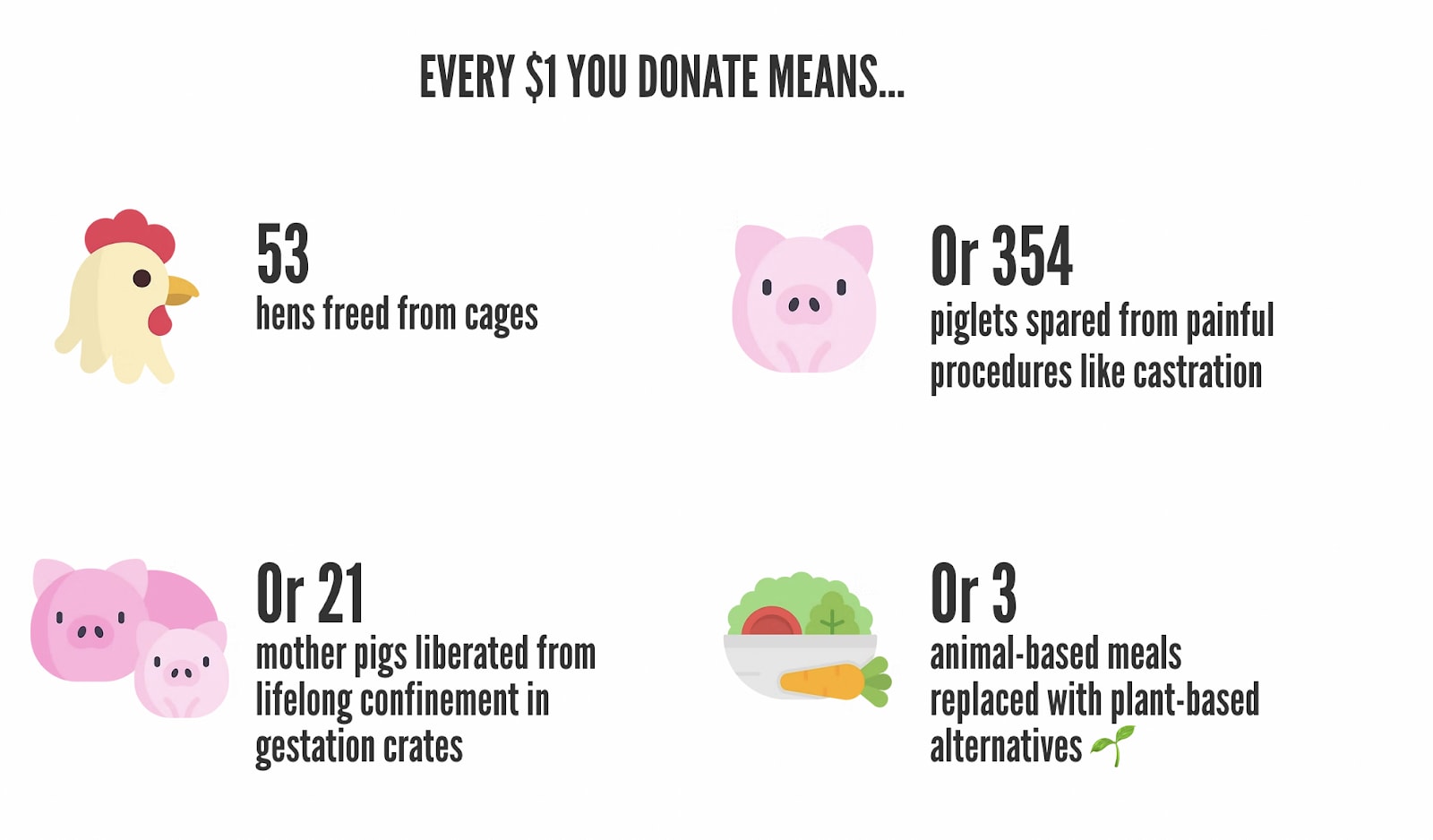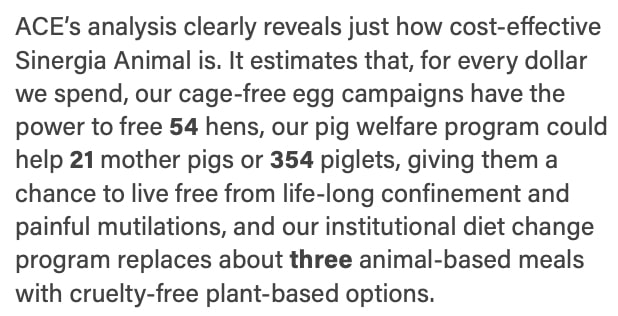Hi everyone,
Recently we discovered Sinergia has been making false claims about helping millions of animals.
We believe this is an important issue because Sinergia receives millions of dollars in grants from EA organizations. Just recently, Open Philanthropy awarded them a $3.3 million grant.
We hope you find time to read our article.




While I think reasons (1) and (2) are relevant to the degree of importance/value in advance notification is necessary, I just don't see any legitimate reason to rush to press here. If Singeria had just dropped new claims (especially during/just before the end of year fundraising period), or was in the public spotlight for some related reasons, then there would be a stronger argument for appreciable costs to delaying publication by a week. I don't see any justifications like that offered. I think you need some meaningful alleged harm from delay or advance notification before mitigating factors like (1) and (2) could come into play.
Reason (3) is unexplained -- why do you think hearing from the charity "can introduce biases"? Moreover, even if you believe that, I don't see why you couldn't at least send an advance copy to Singeria a week in advance with a pre-commitment that you were not going to change the text absent proof of a clear factual error. That would allow Singeria to prepare a response for submission concurrently with your critique, and for the reader to see both sides of the dispute at once. Choosing not to do so means that a decent number of readers who see your charges will not see Singeria's response, a state of affairs that does not further truth discovery.
As for myself, I am increasingly inclined not to read substantive critiques of this sort absent either good cause for not providing an advance copy or the passage of enough time for the organization to respond. If my Forum viewing habits mean I don't see the response (and don't remember to reopen the post after a week or so), then that's OK. I think the downside of missing some critiques is likely outweighed by avoiding the cognitive biases that can come with delayed presentation of the other side of the story and/or the risk of missing the other side when it comes out.